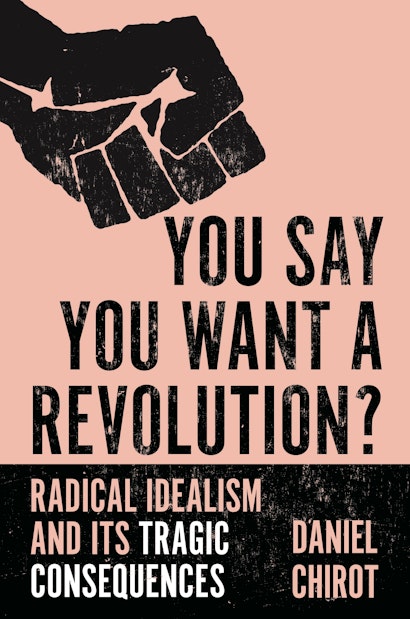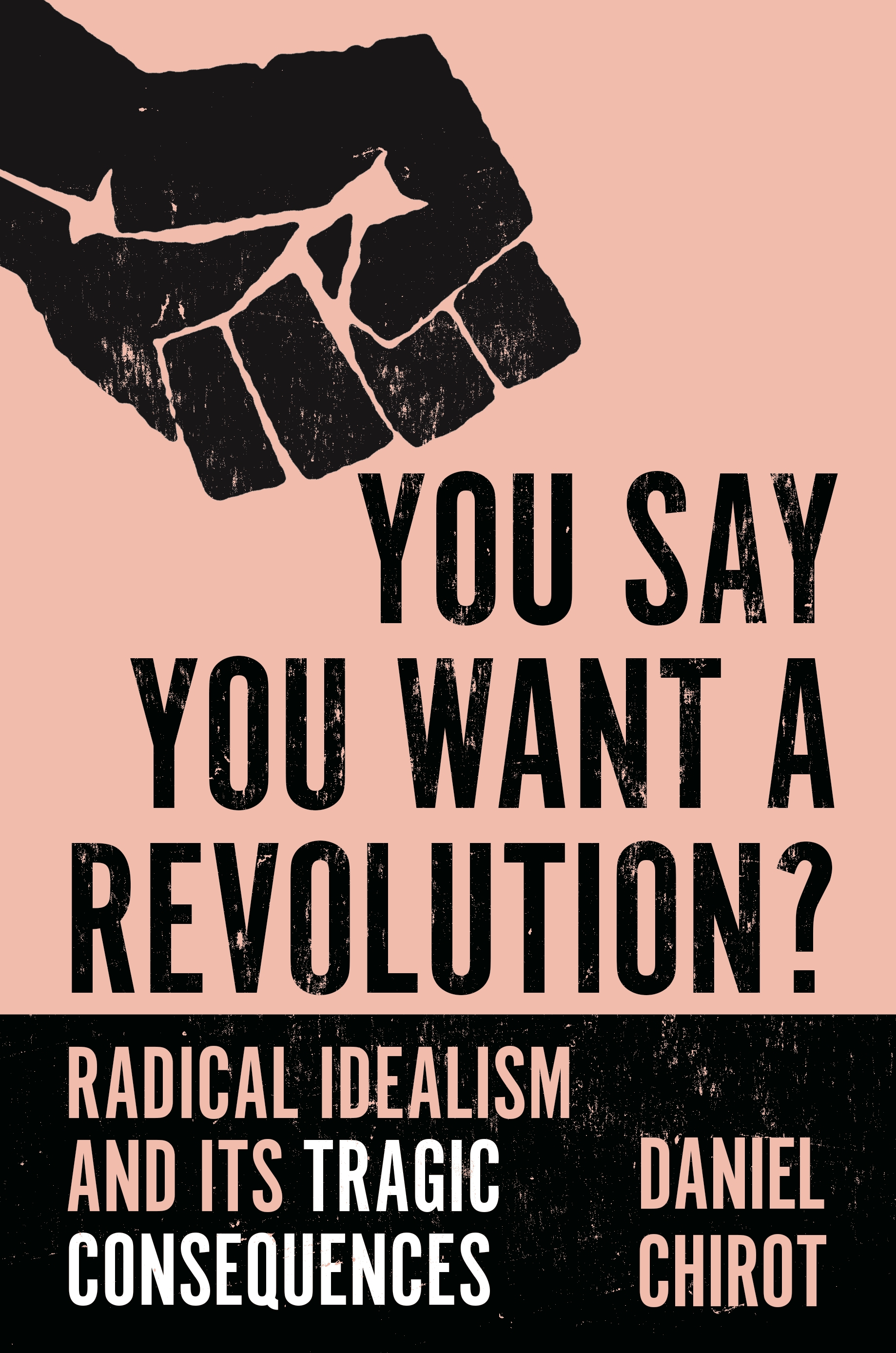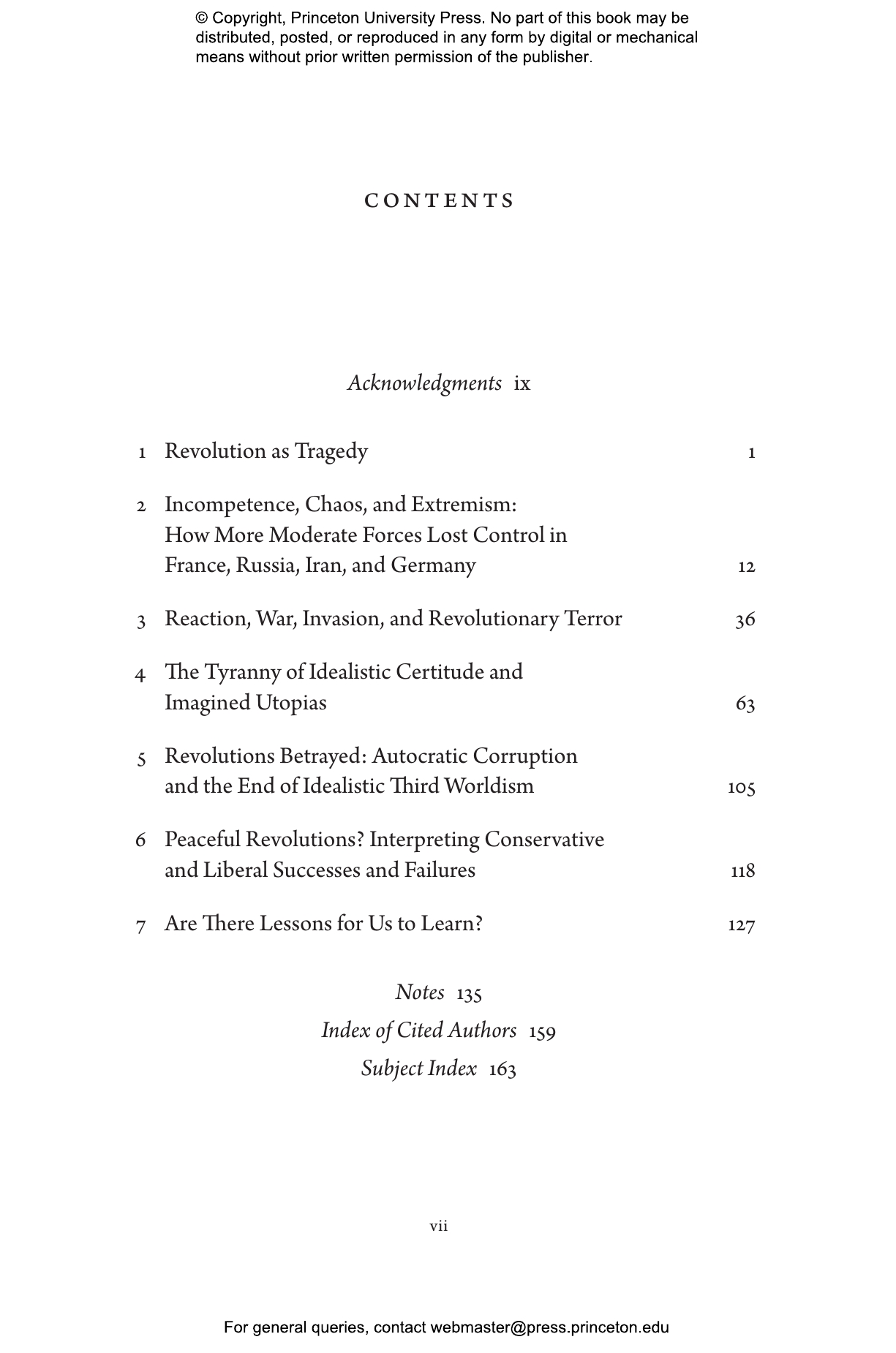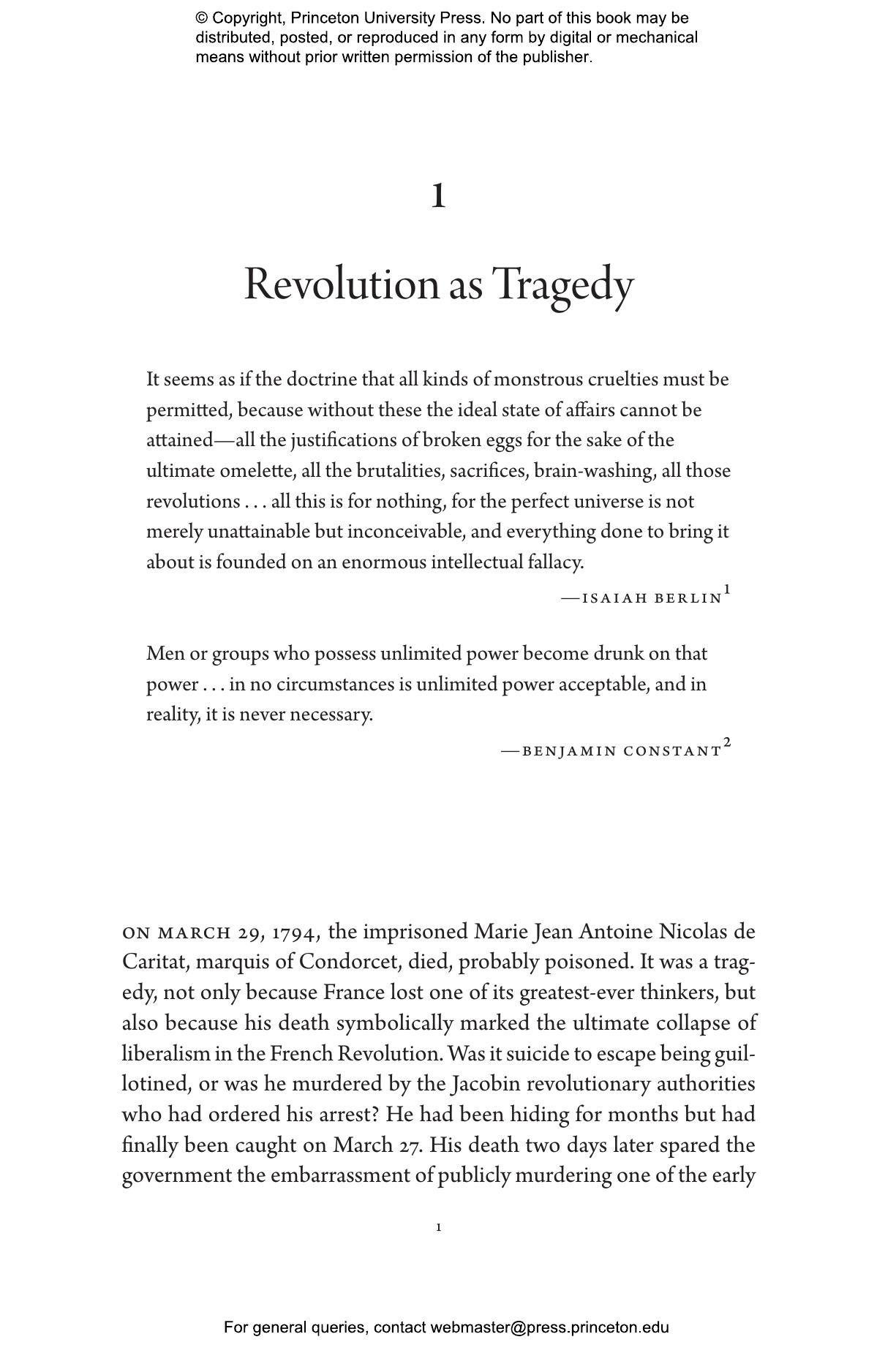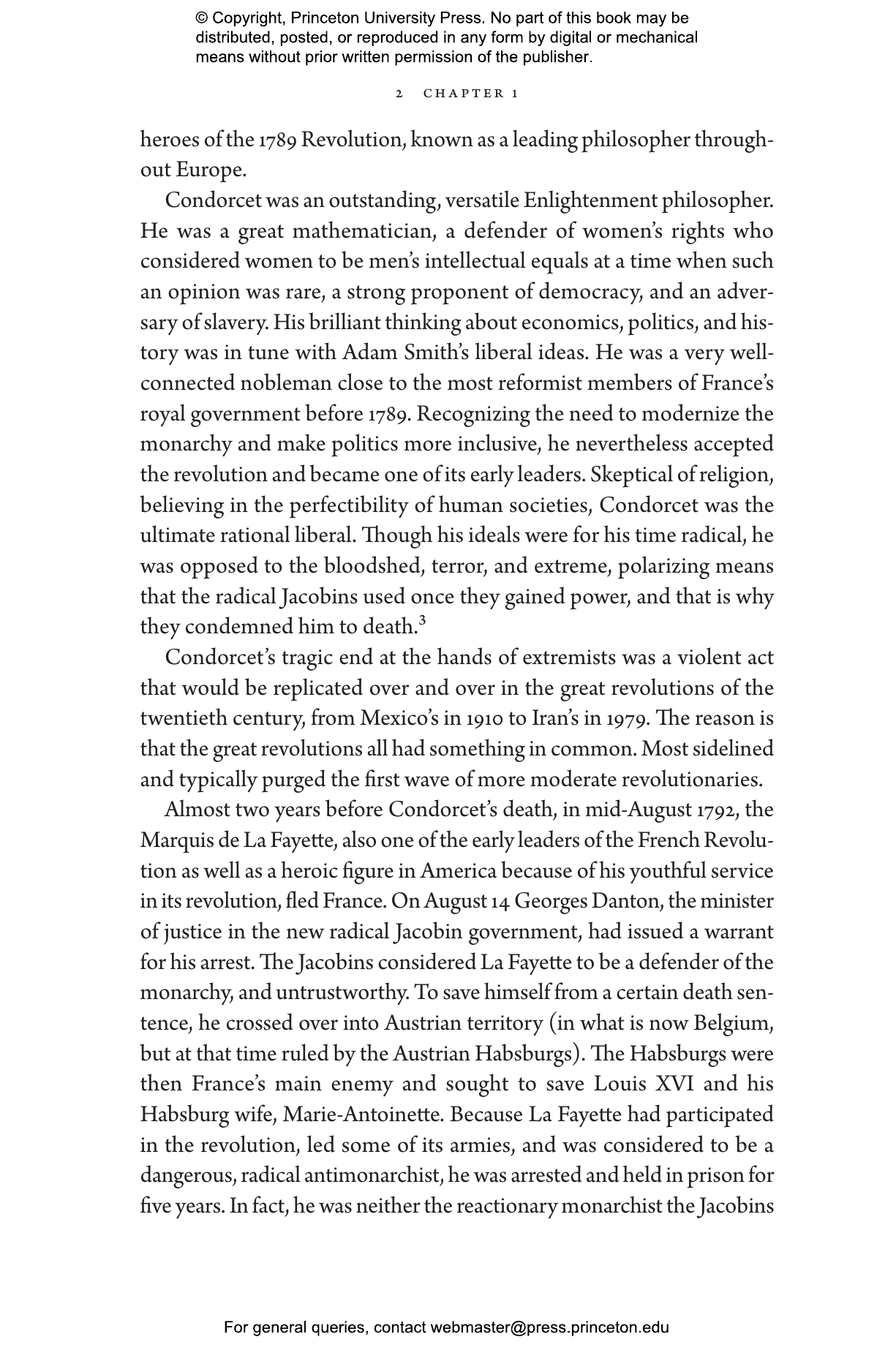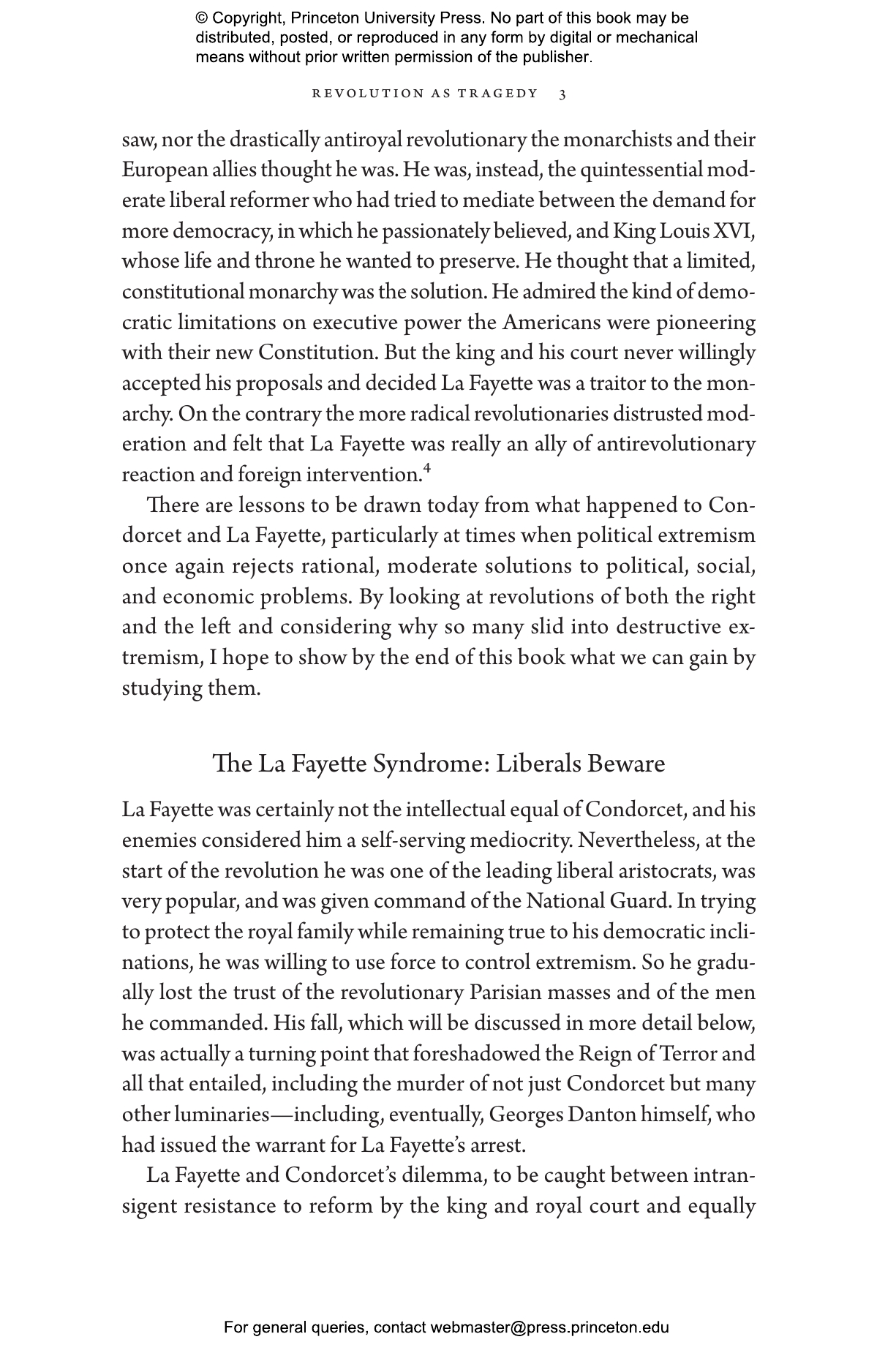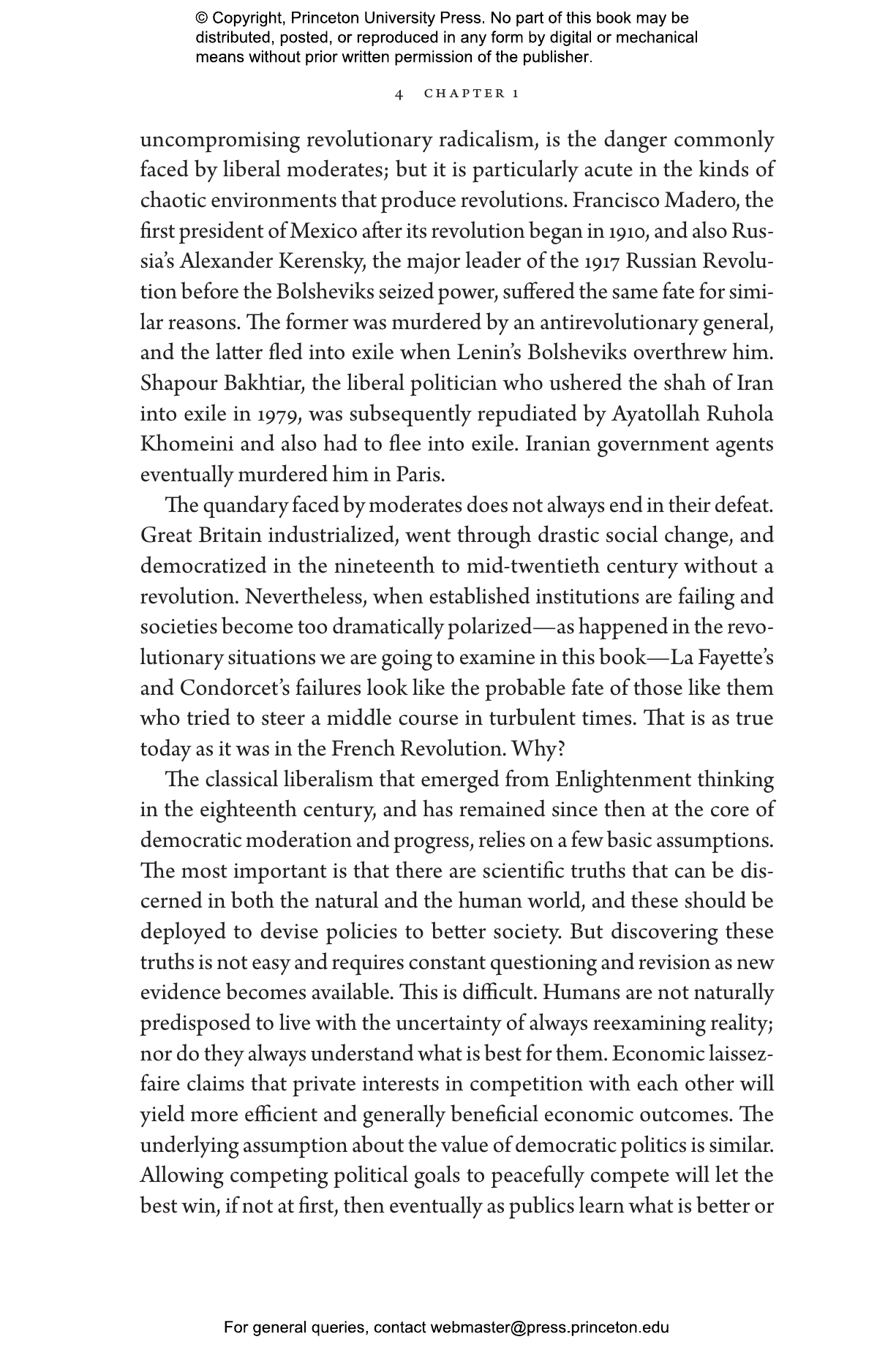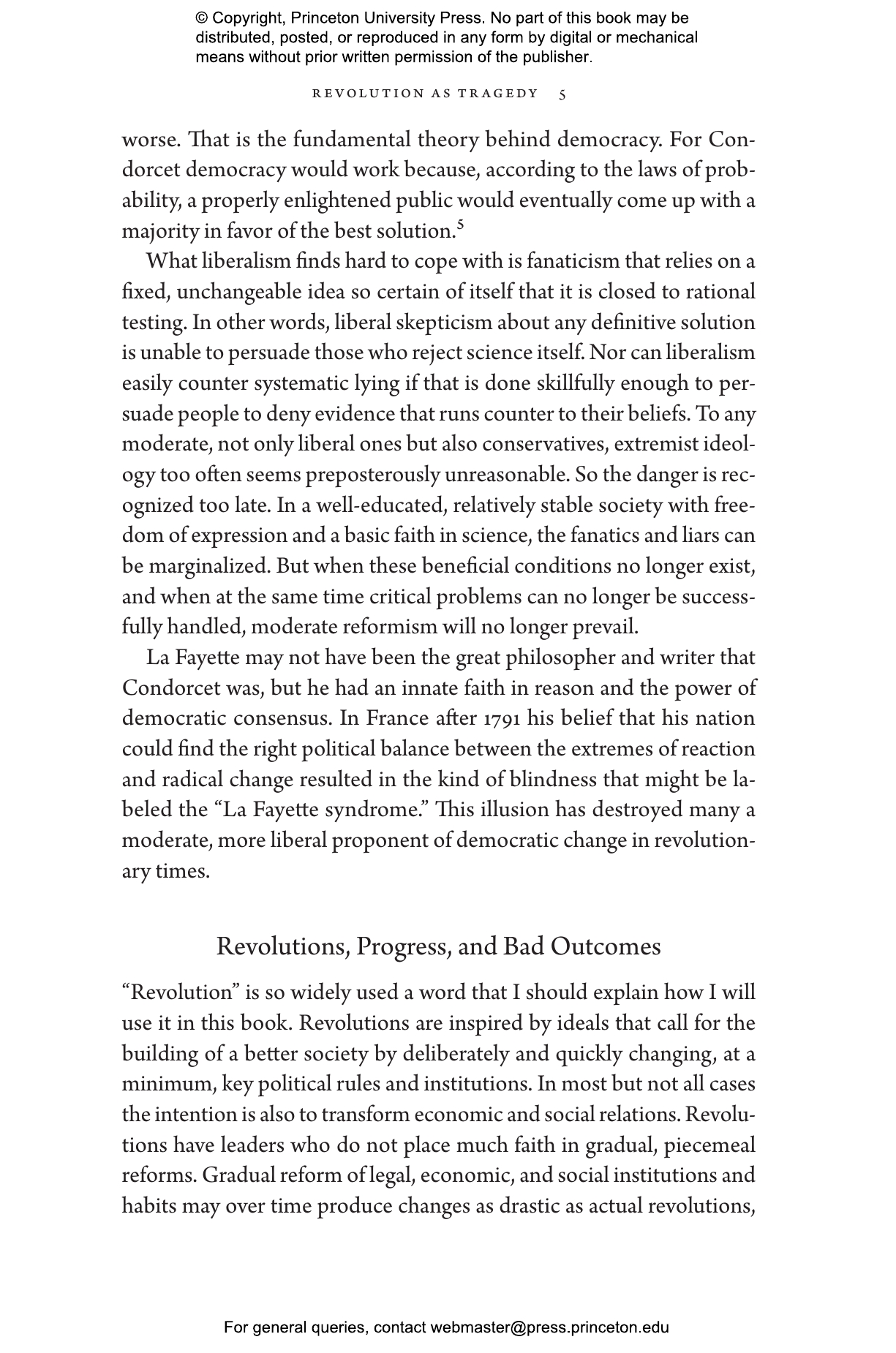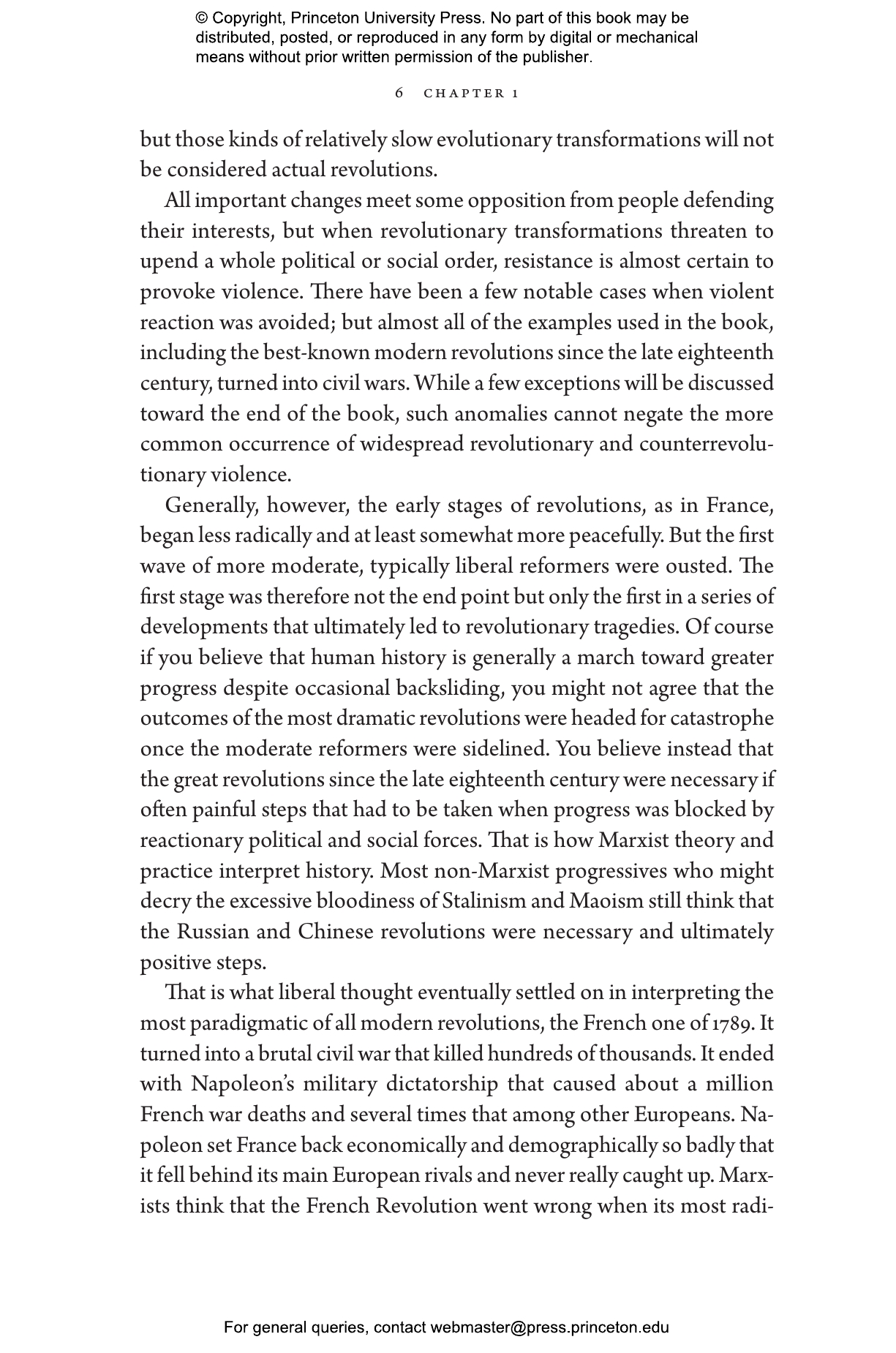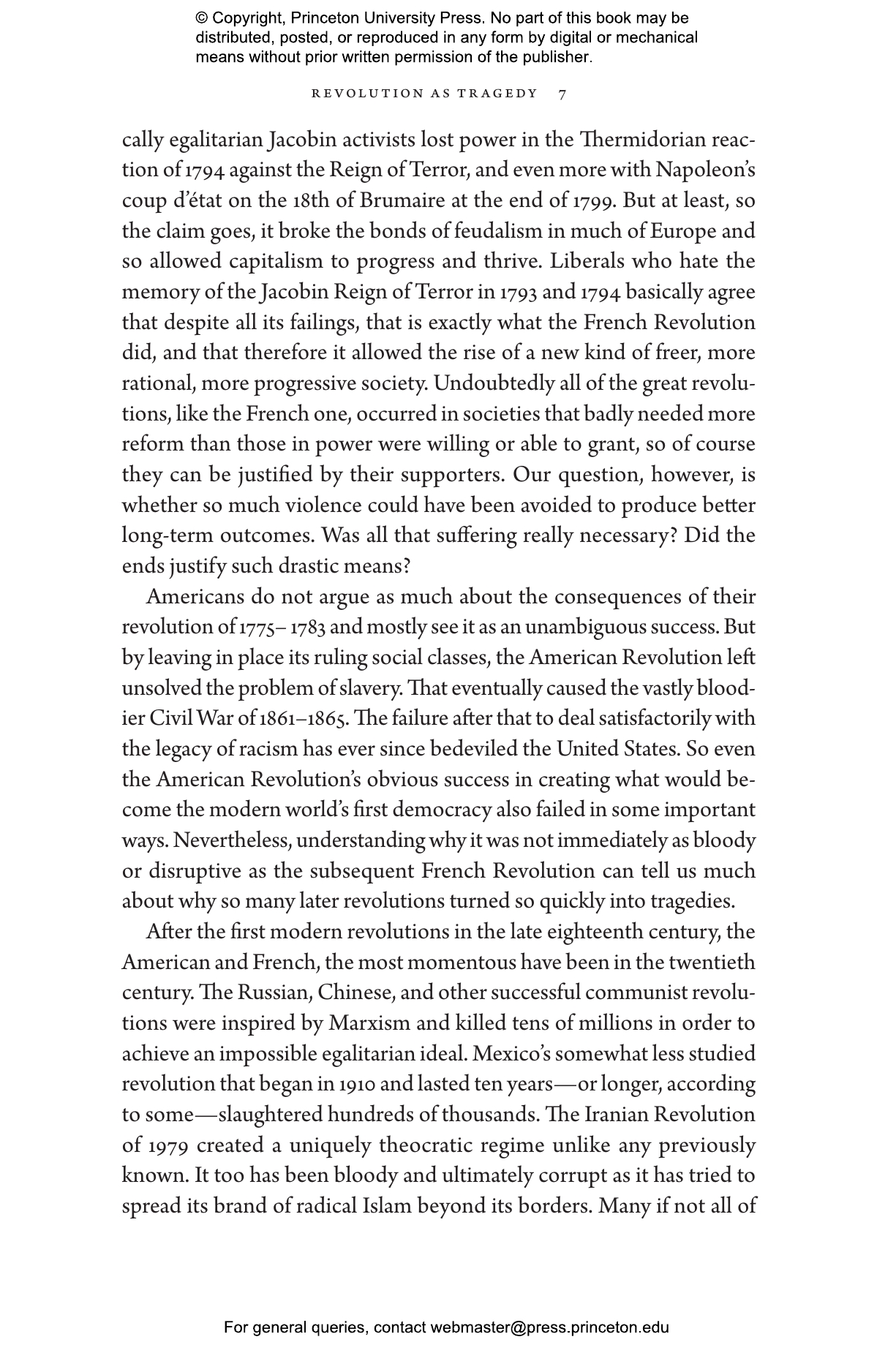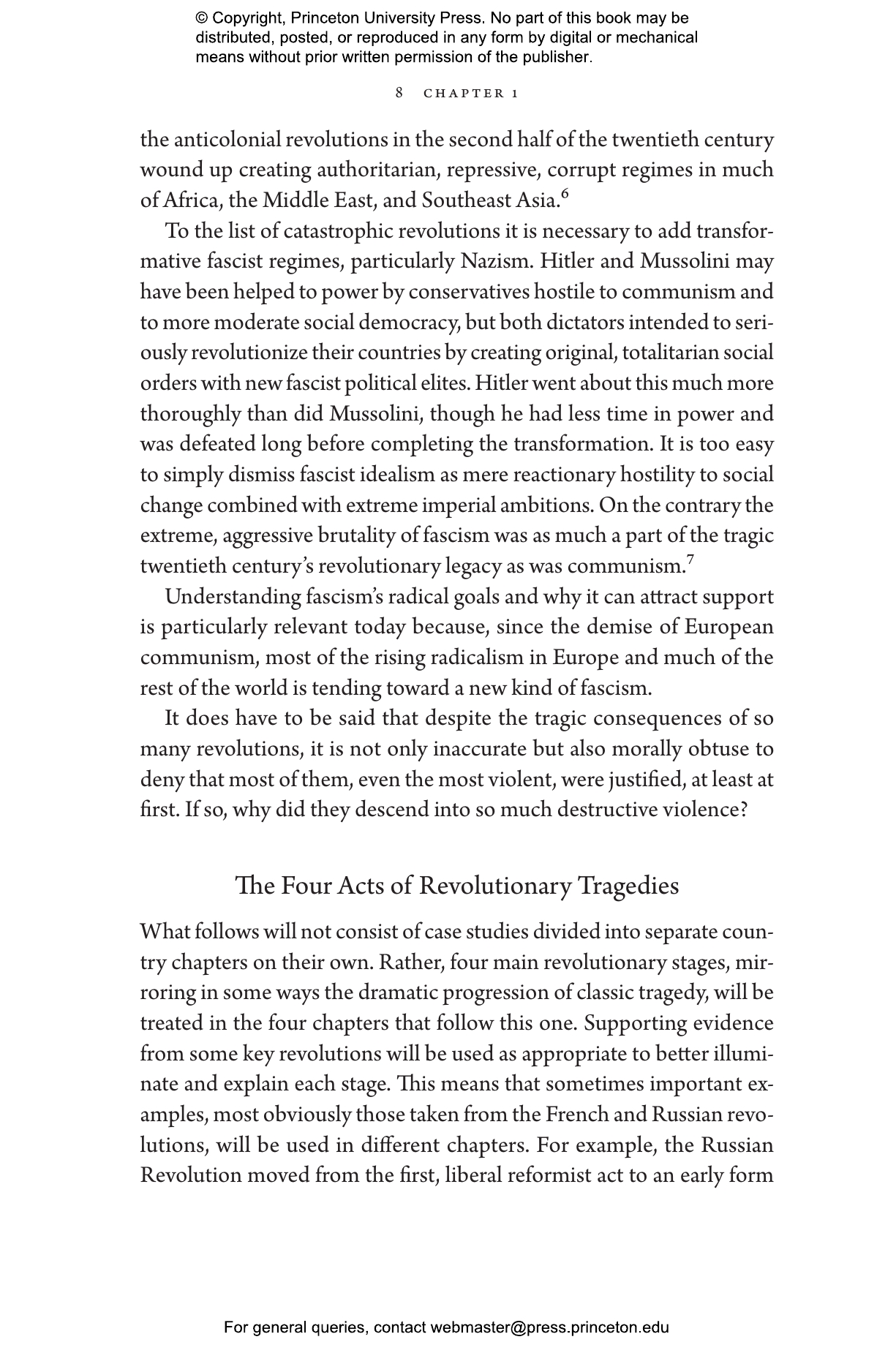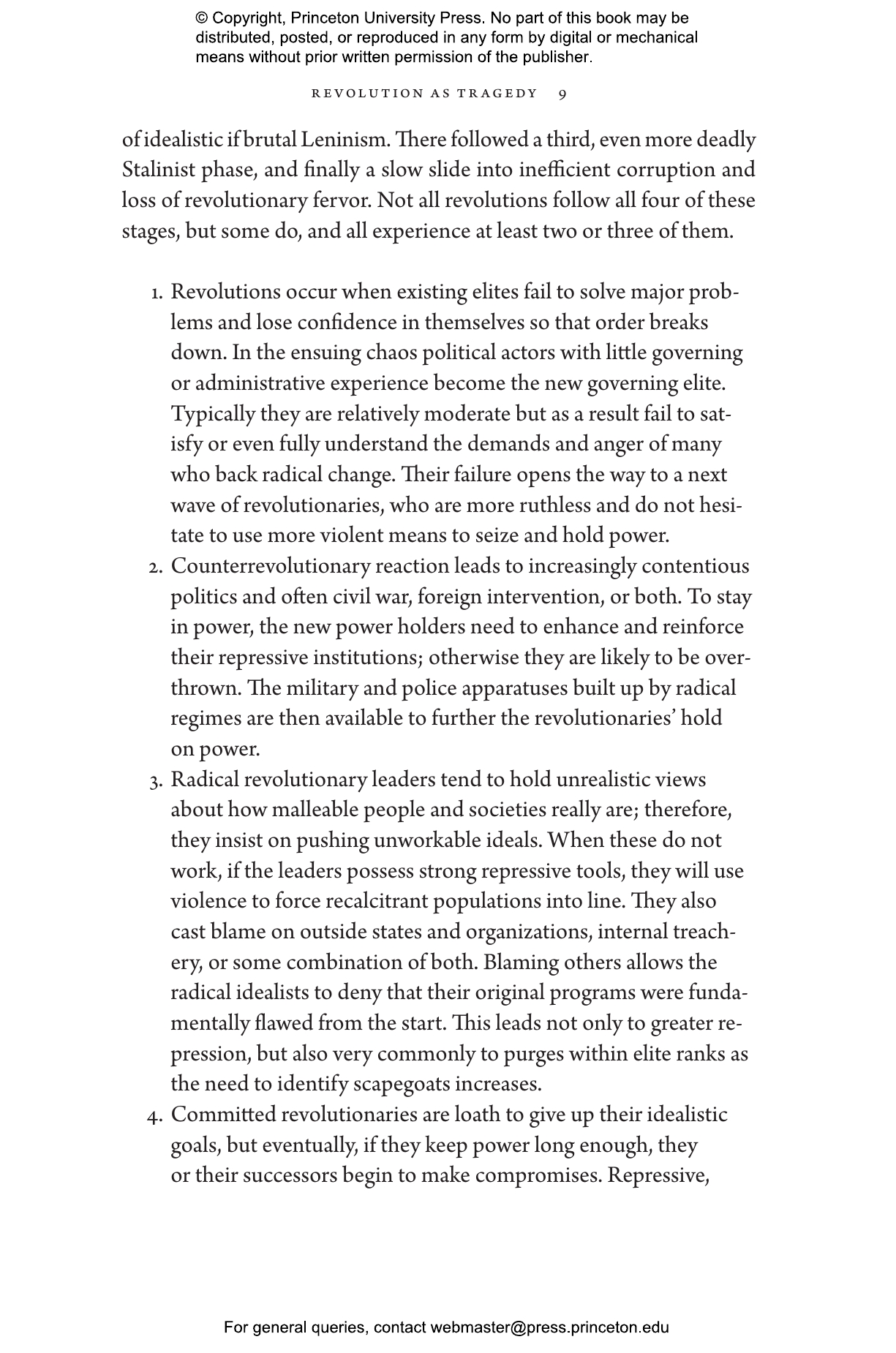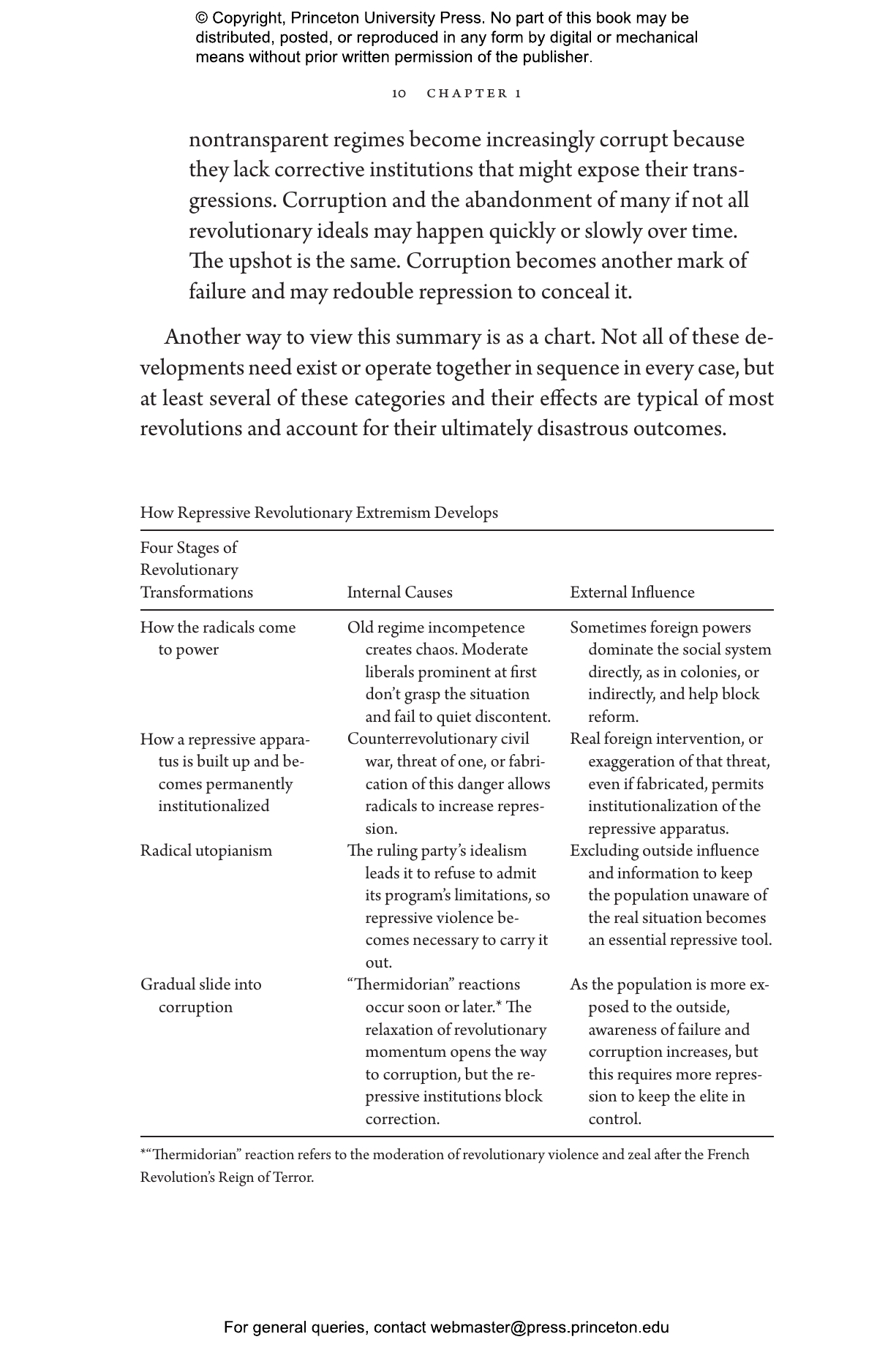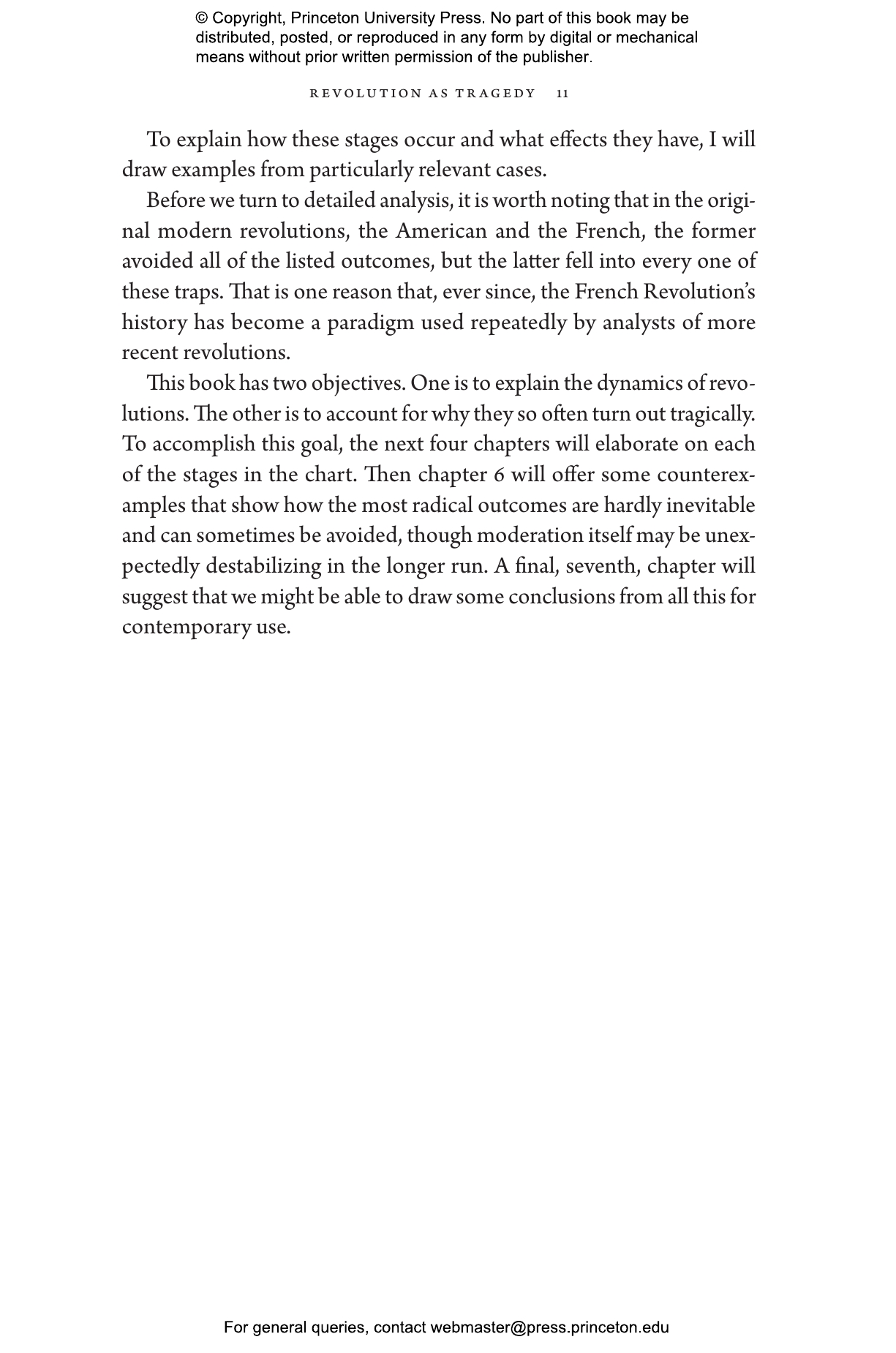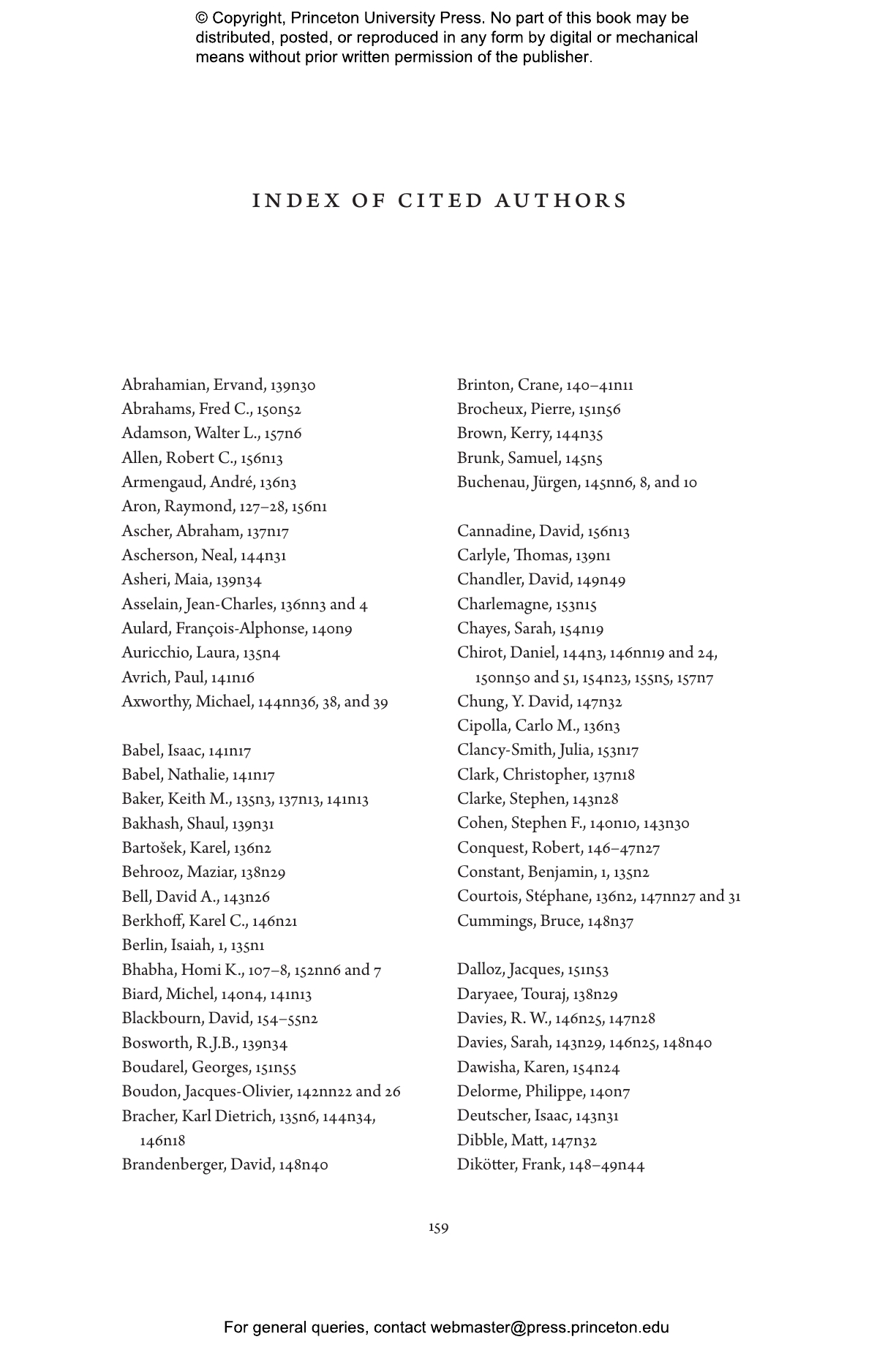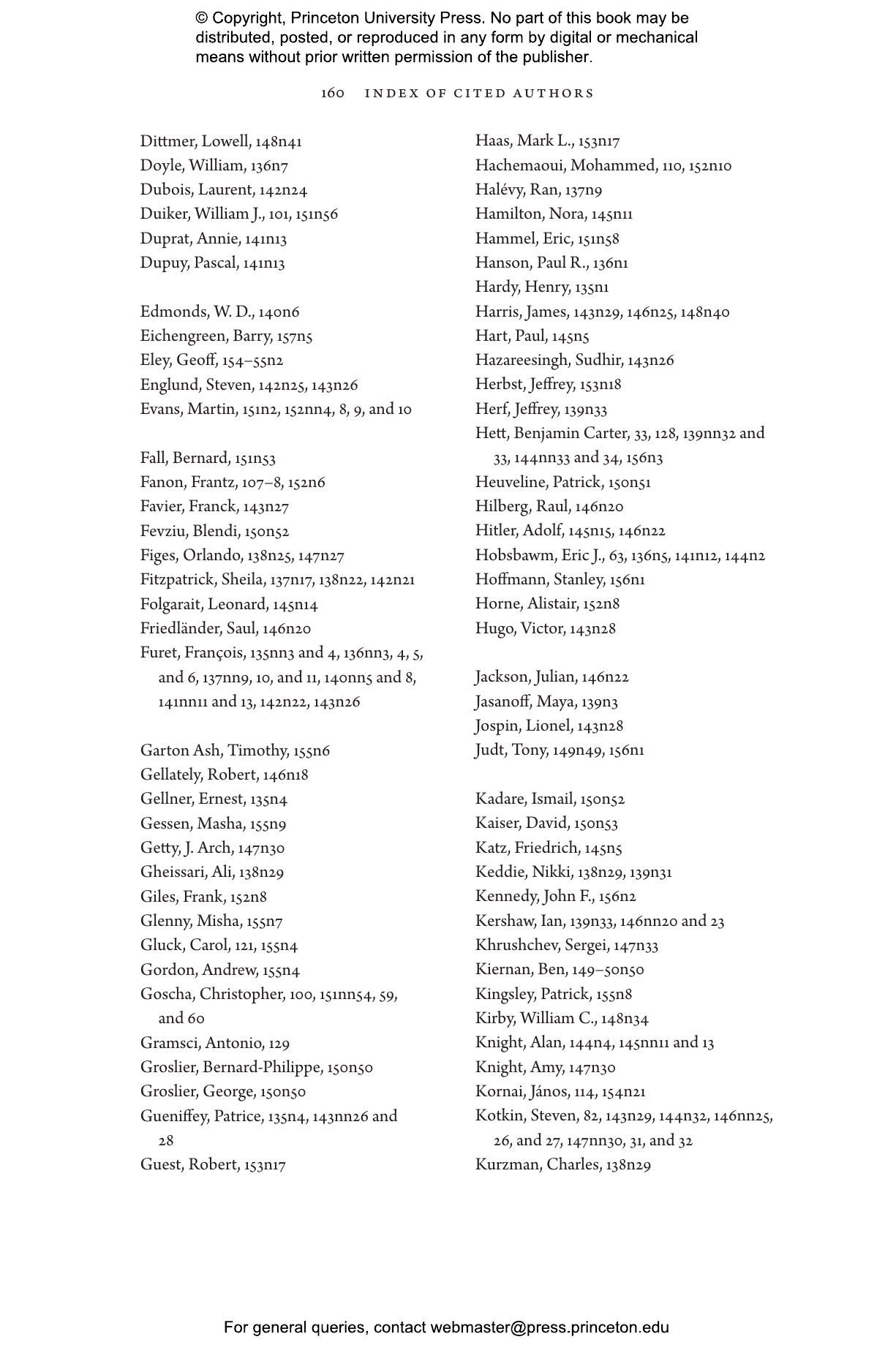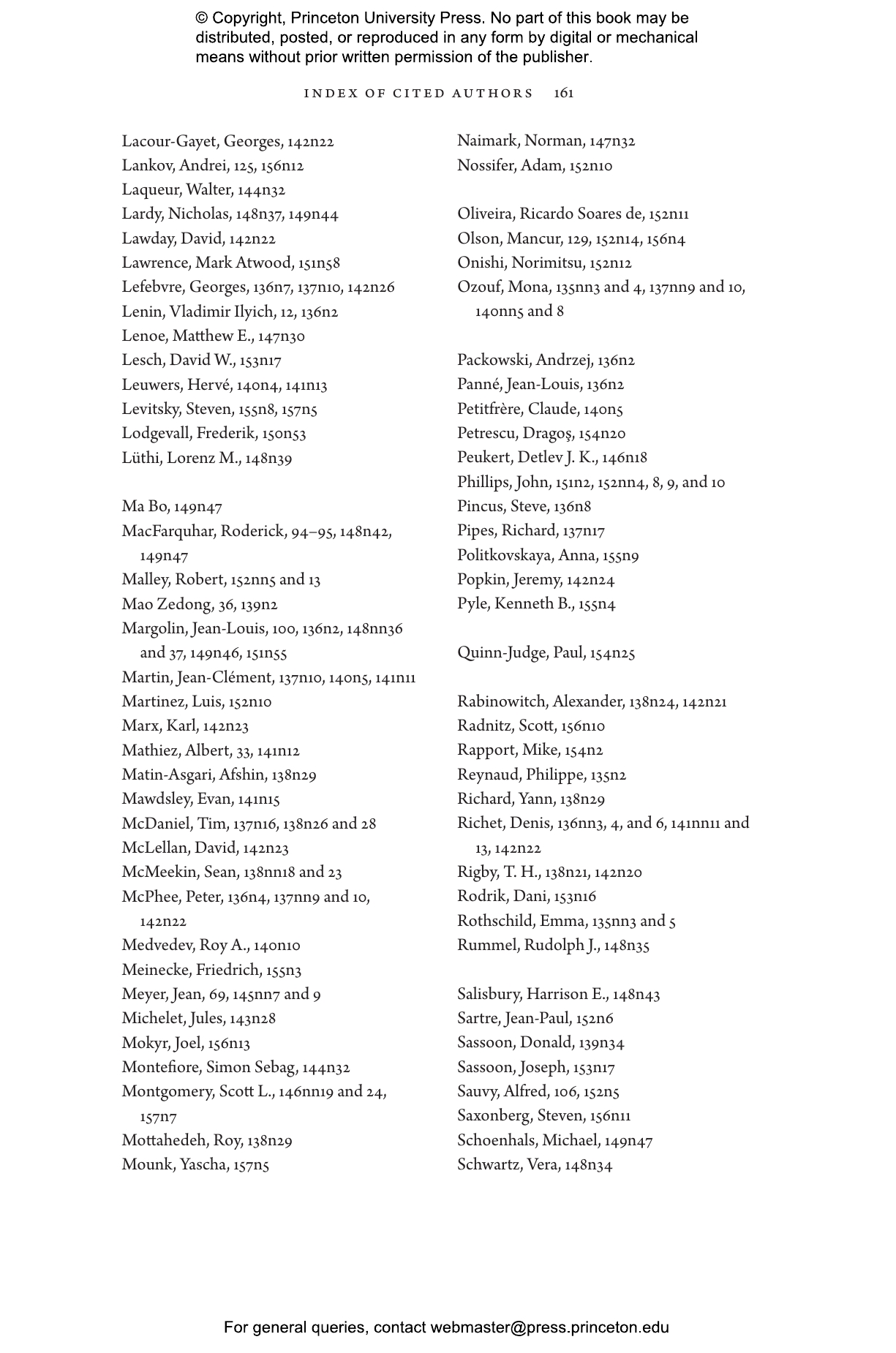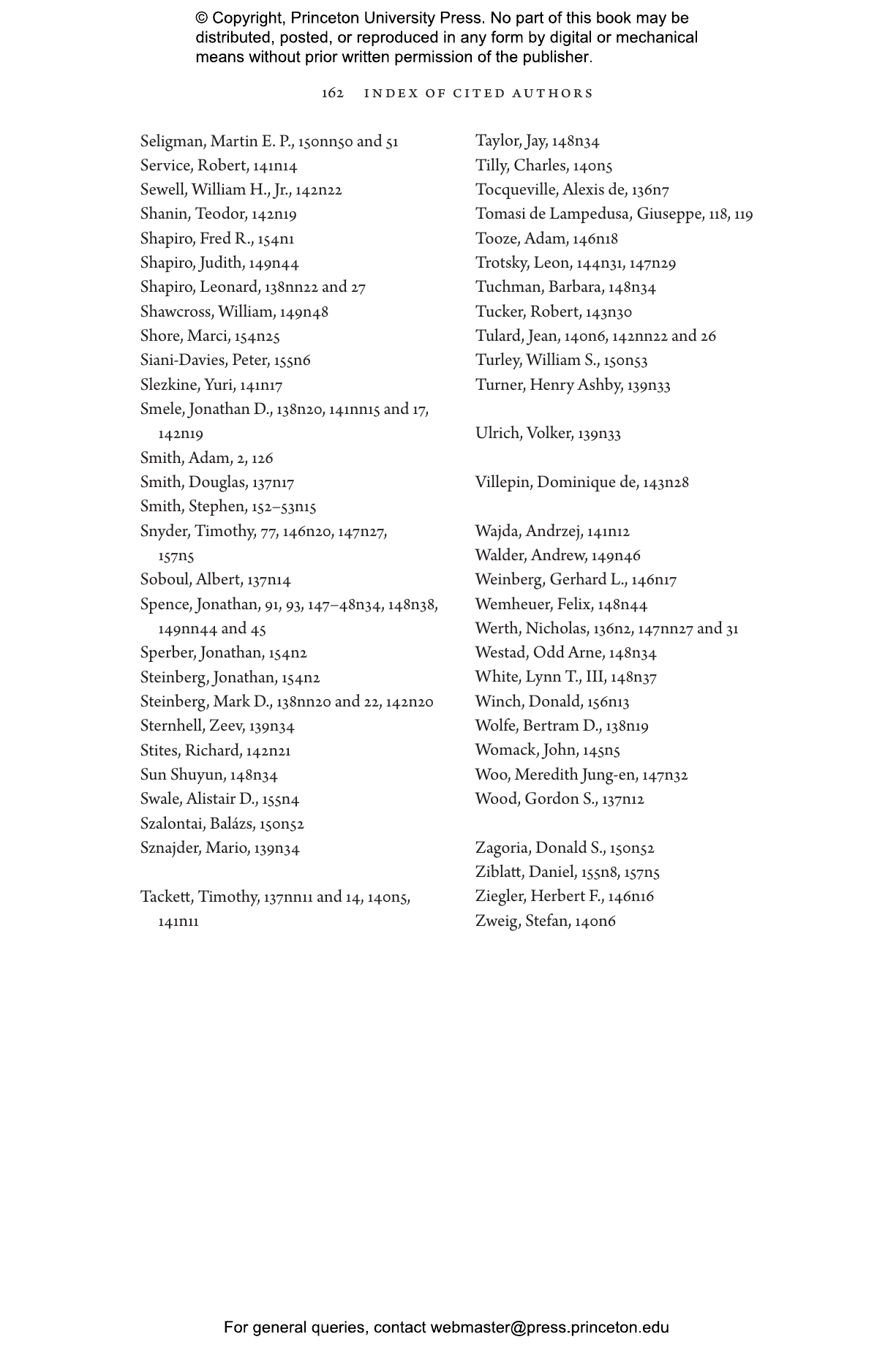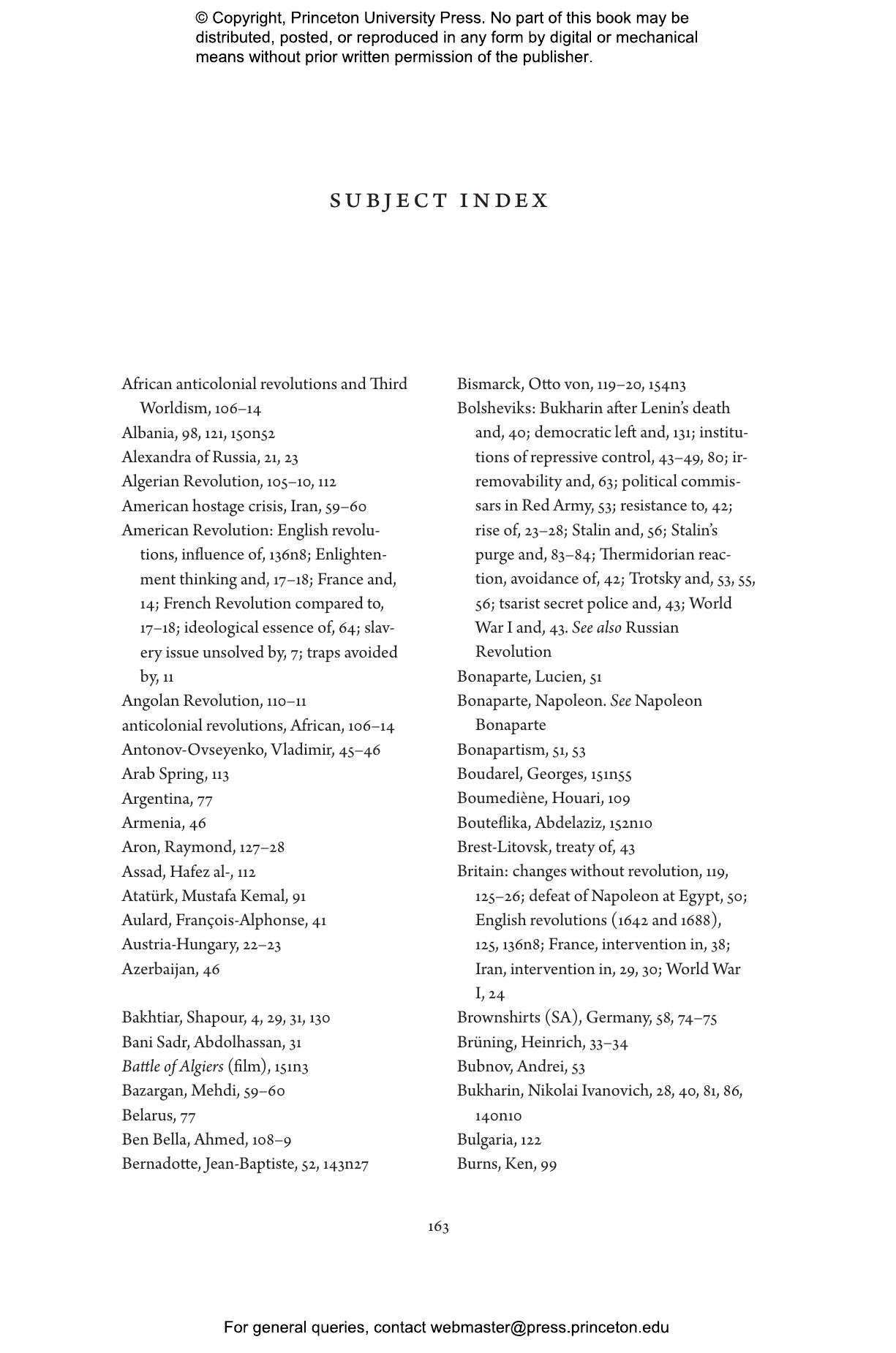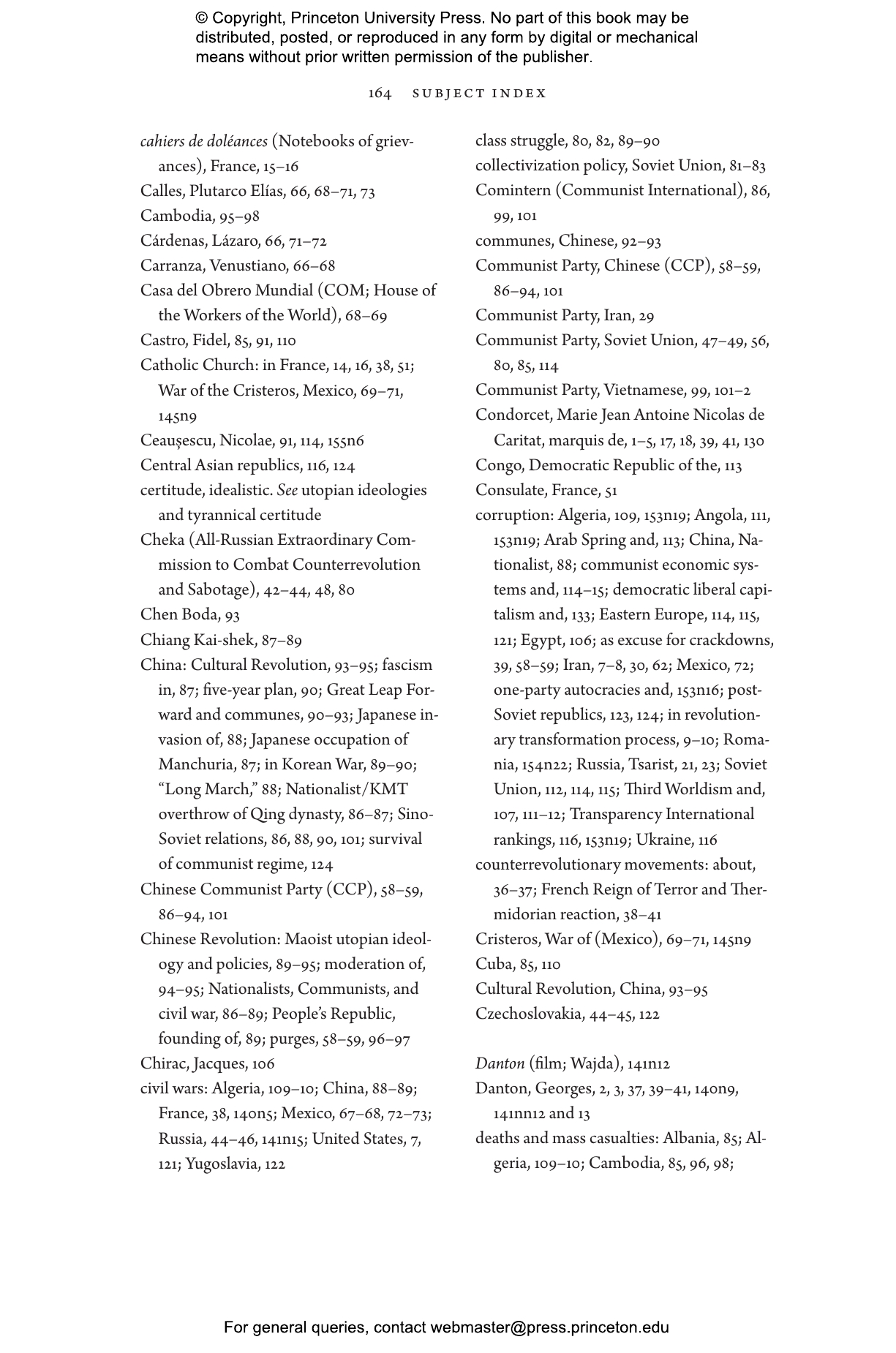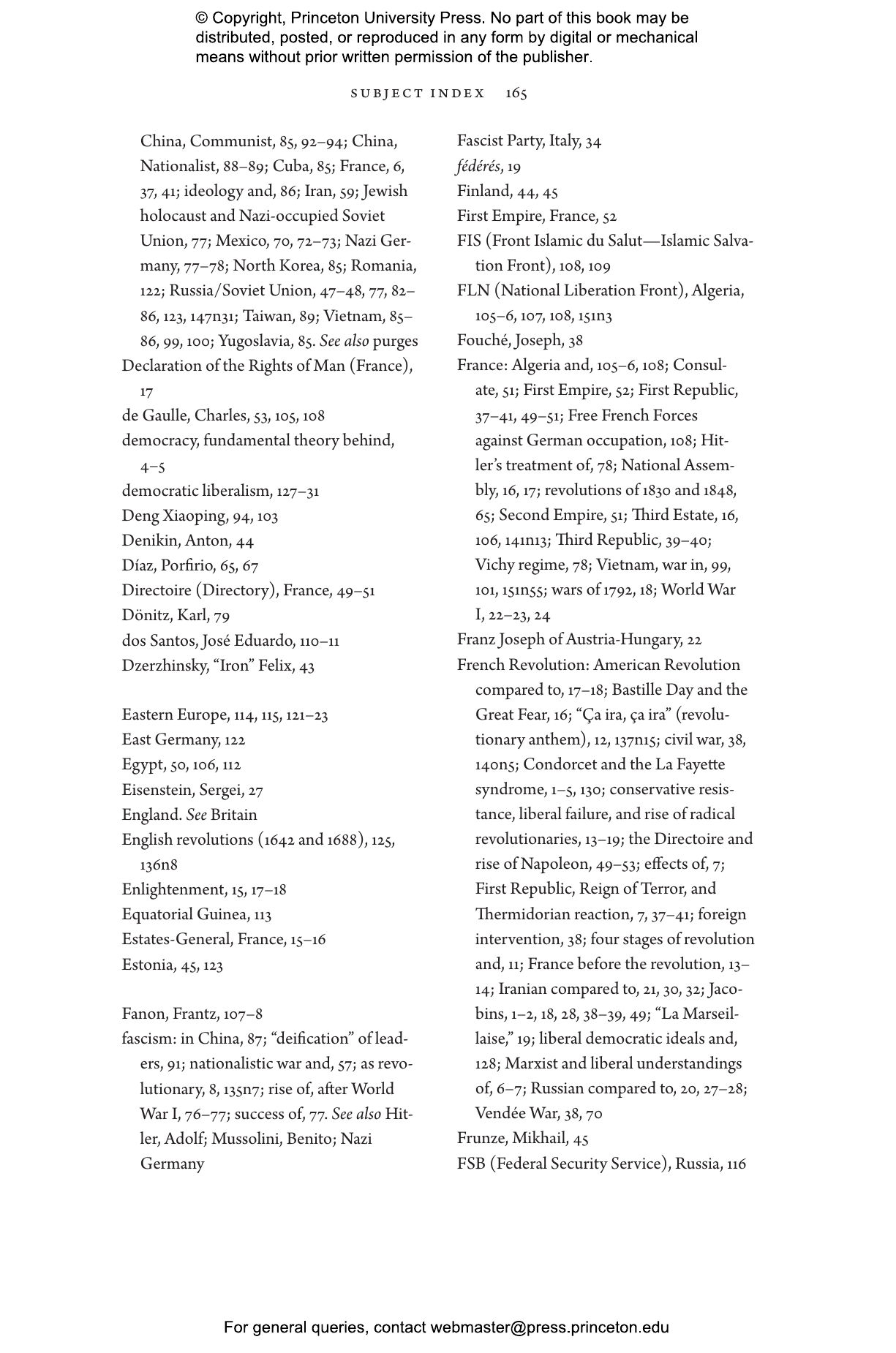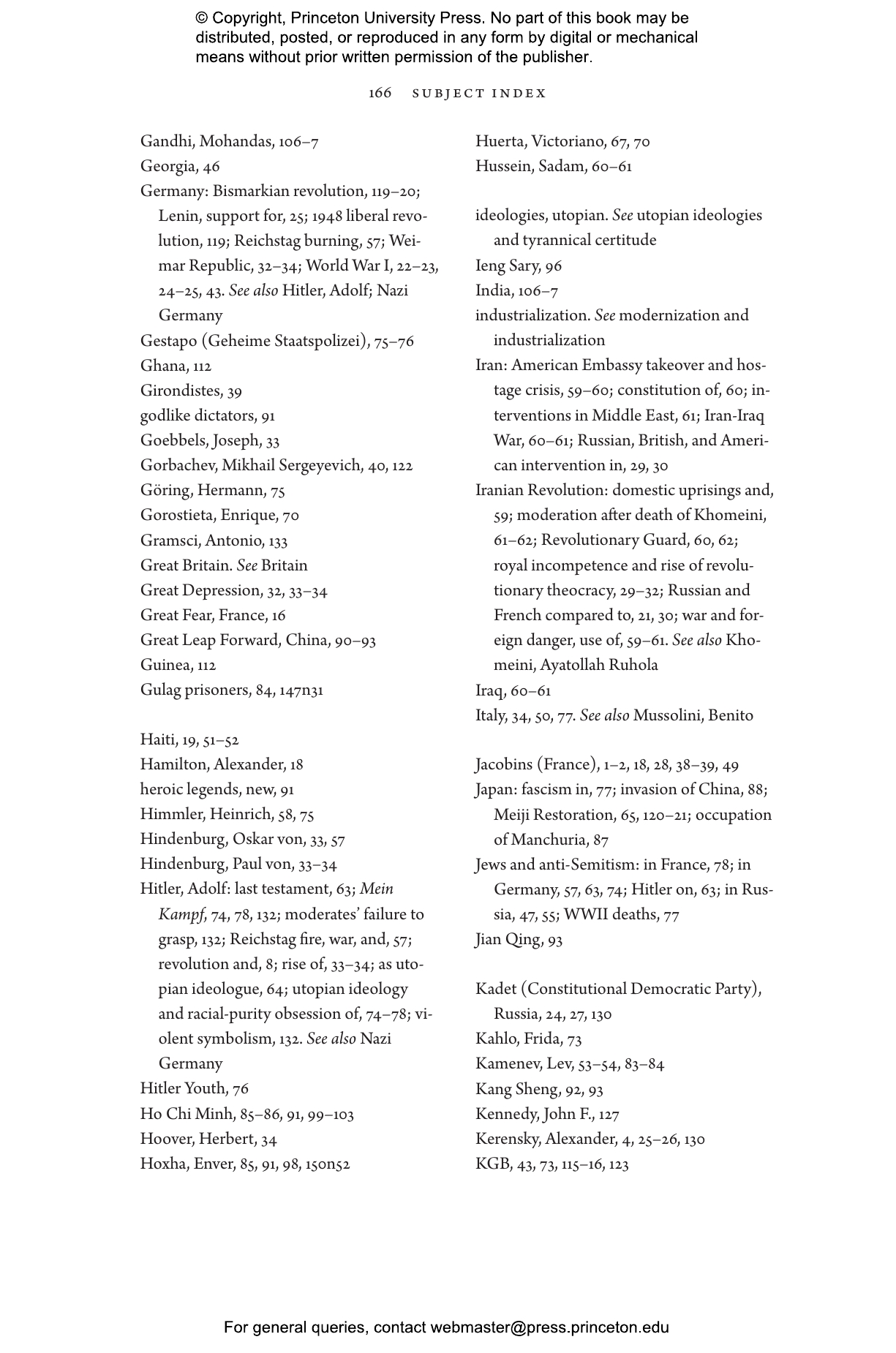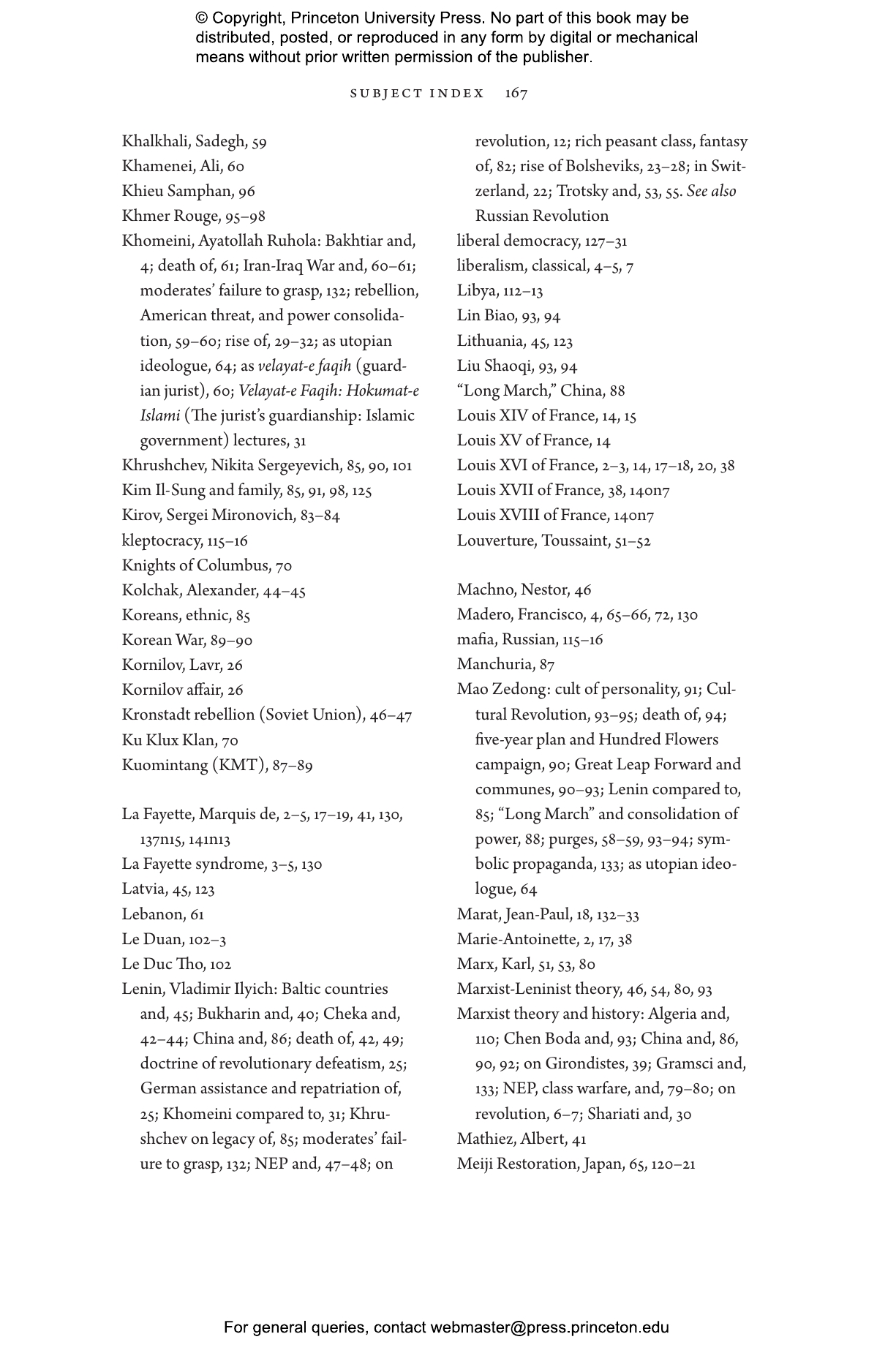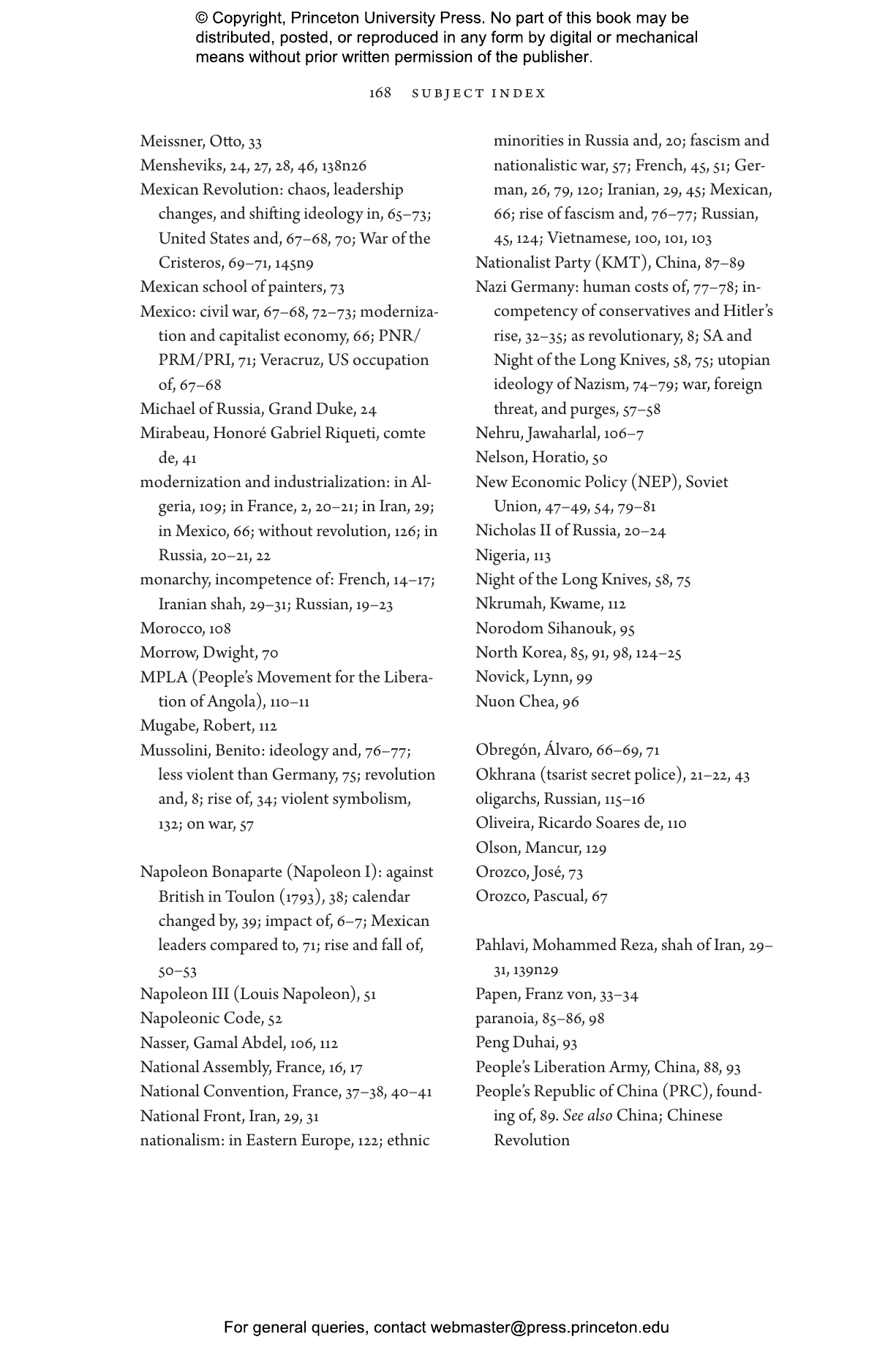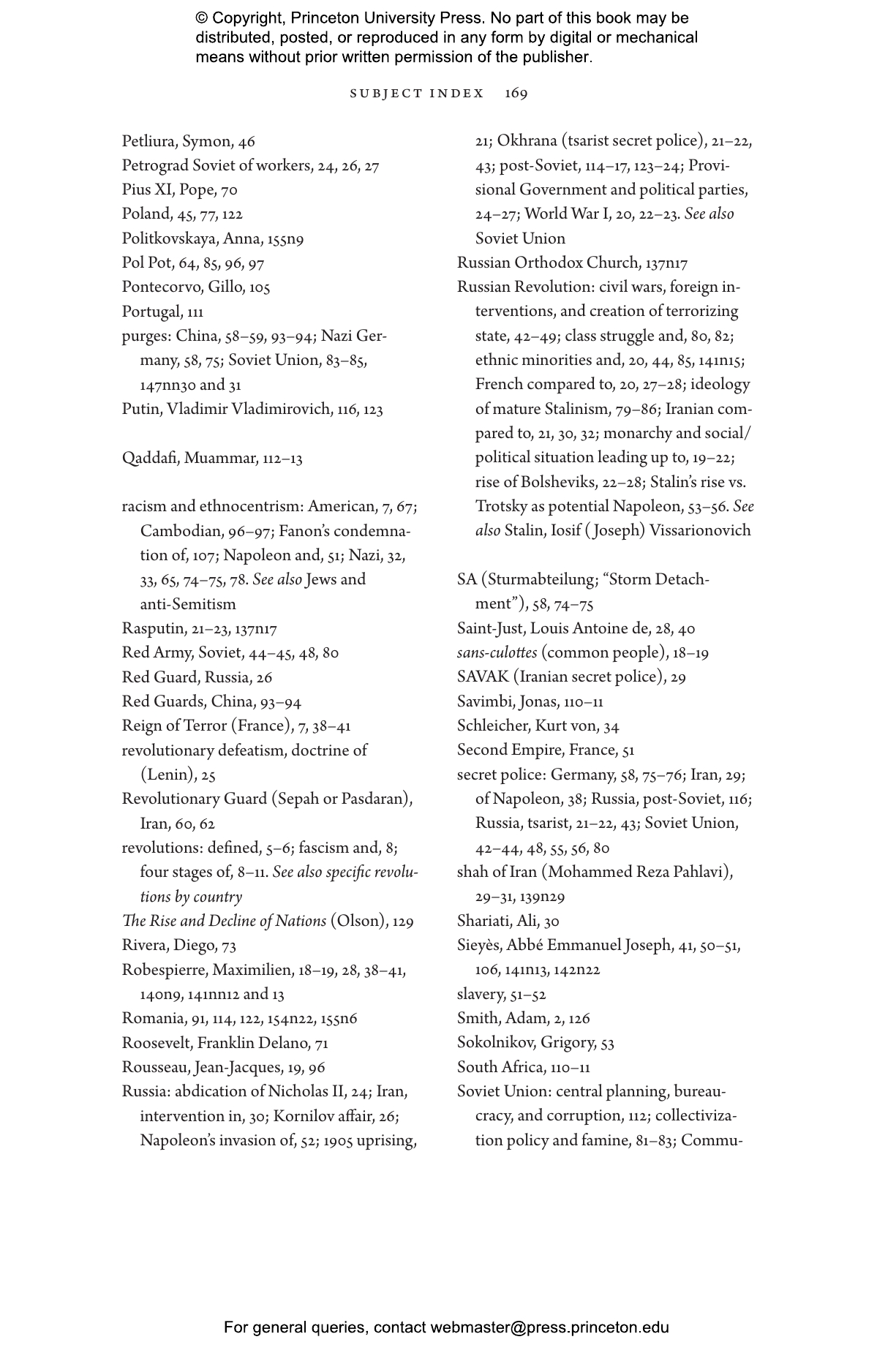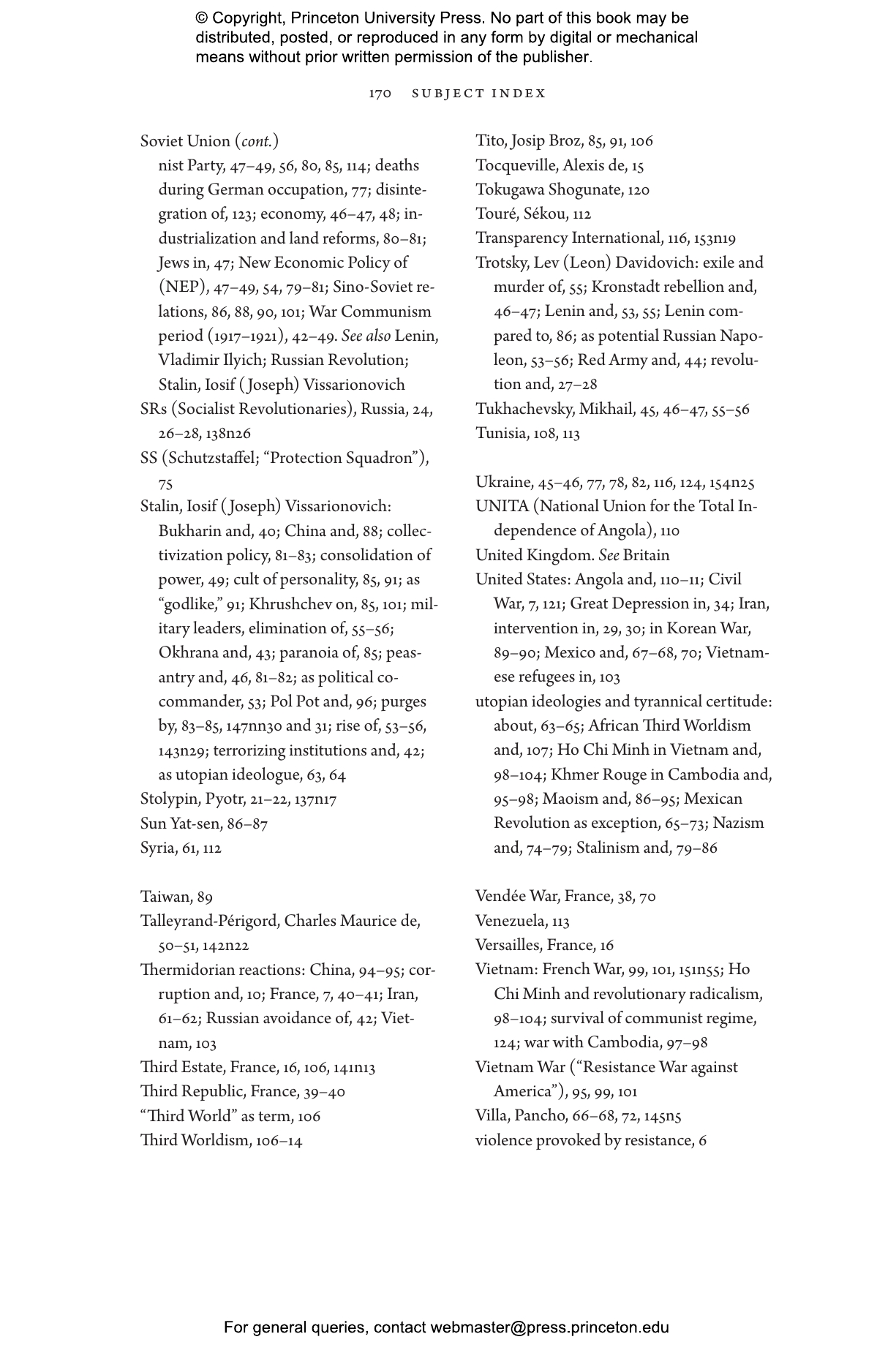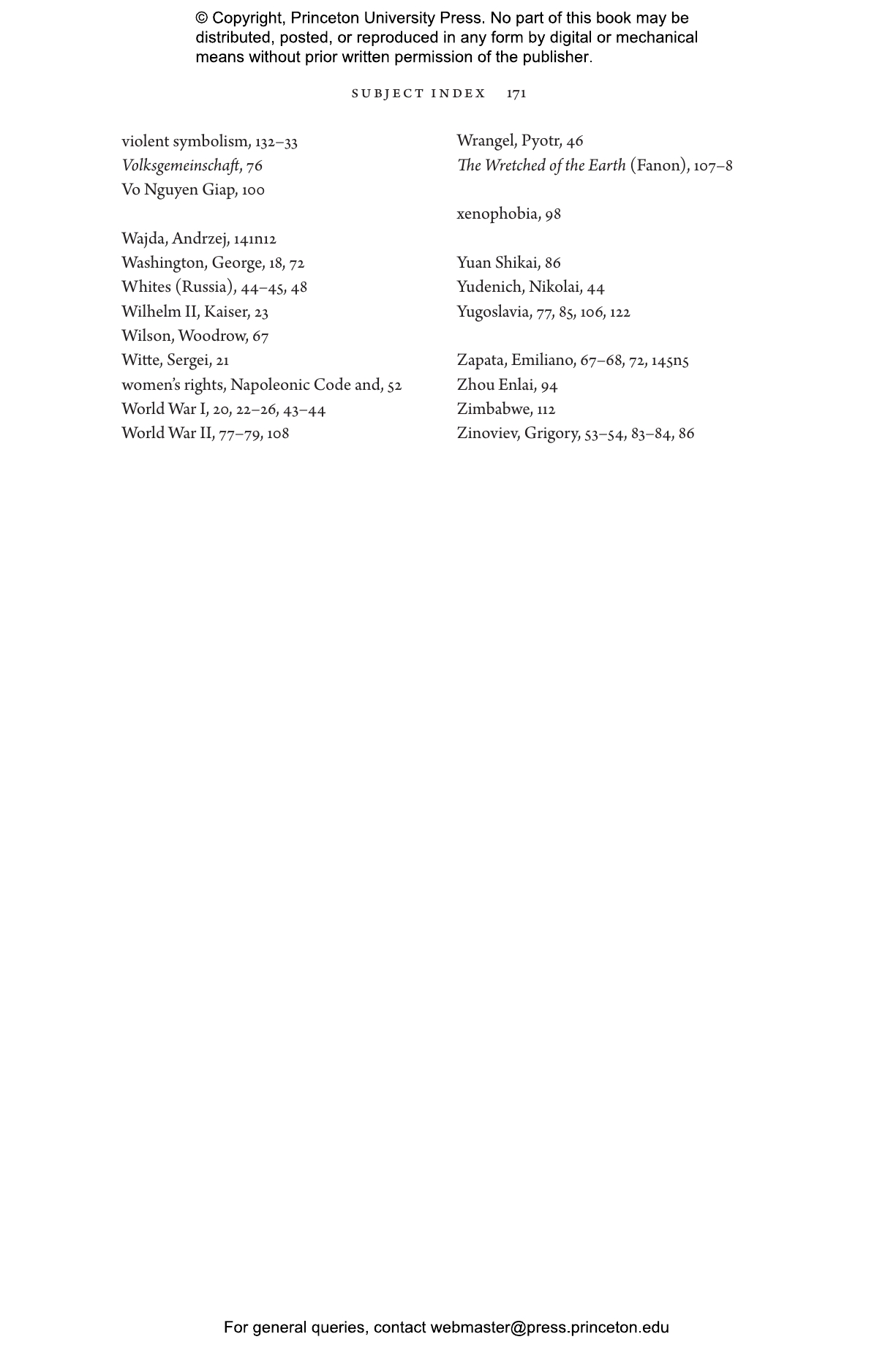Why have so many of the iconic revolutions of modern times ended in bloody tragedies? And what lessons can be drawn from these failures today, in a world where political extremism is on the rise and rational reform based on moderation and compromise often seems impossible to achieve? In You Say You Want a Revolution?, Daniel Chirot examines a wide range of right- and left-wing revolutions around the world—from the late eighteenth century to today—to provide important new answers to these critical questions.
From the French Revolution of the eighteenth century to the Mexican, Russian, German, Chinese, anticolonial, and Iranian revolutions of the twentieth, Chirot finds that moderate solutions to serious social, economic, and political problems were overwhelmed by radical ideologies that promised simpler, drastic remedies. But not all revolutions had this outcome. The American Revolution didn’t, although its failure to resolve the problem of slavery eventually led to the Civil War, and the collapse of communism in Eastern Europe was relatively peaceful, except in Yugoslavia. From Japan, North Korea, Vietnam, and Cambodia to Algeria, Angola, Haiti, and Romania, You Say You Want a Revolution? explains why violent radicalism, corruption, and the betrayal of ideals won in so many crucial cases, why it didn’t in some others—and what the long-term prospects for major social change are if liberals can’t deliver needed reforms.
A powerful account of the unintended consequences of revolutionary change, You Say You Want a Revolution? is filled with critically important lessons for today’s liberal democracies struggling with new forms of extremism.
Daniel Chirot is the Herbert J. Ellison Professor of Russian and Eurasian Studies at the Henry Jackson School of International Studies at the University of Washington. He is the author of many books, most recently, The Shape of the New: Four Big Ideas and How They Made the Modern World (with Scott L. Montgomery) (Princeton), which was named one of the New York Times Book Review's 100 Notable Books of the Year.
"Historically dense, intelligently organized, and deeply analytical, You Say You Want a Revolution? offers a great deal to a wide array of audiences. . . . This book’s cheeky title is at once a warning and a lament: those who foment discord as a vehicle for change very often find themselves in a situation more dire than the status quo ante, and the idealism inherent in such movements is exposed as a mirage."—Choice
"This is an essential book."—Steven Simon, Survival: Global Politics and Strategy
"For those seeking a quick, sharply written survey of how revolutions have so often brought violence, corruption, and authoritarian rule, Chirot has provided a clear and valuable book."—Jack Goldstone, Social Forces
"Daniel Chirot thinks like a scholar and writes like an engaging journalist as he looks for wisdom in history. His latest book concentrates the mind. Read carefully what political leaders write and say, Chirot says, and if their words sound extreme, don't dismiss them as mere posturing. This is prudent advice today, as democracies struggle and the mood for tearing things down is once again in the air."—Jeffrey Gedmin, editor-in-chief, The American Interest, and former president and CEO, Radio Free Europe/Radio Liberty
"When a deeply original scholar considers a big subject, even one as well-plowed as revolutions, we are rewarded with fresh insights and shown new ways to think about it. This book will be read for many years for brilliant analysis, clear exposition, and elegant prose."—Zoltan Barany, author of How Armies Respond to Revolutions and Why
"Is the West in the throes of prerevolutionary upheaval? For a dispassionate and authoritative analysis of the question on many of our minds, read Daniel Chirot's tour d’horizon of modern revolutions, You Say You Want a Revolution?, based on a lifetime of teaching and research on societal change and upheaval."—Peter Skerry, author of Mexican Americans: The Ambivalent Minority
"You Say You Want a Revolution? provides a masterful explanation of why revolutions that begin with liberal ambitions frequently devolve into extremist authoritarian regimes. Chirot provides a significant step forward in our understanding of revolutions—and even regime changes in general."—Ann Hironaka, author of Neverending Wars
"Daniel Chirot's book on the unexpected consequences of revolutions is important, thought-provoking, rich in comparative details, and beautifully written."—Lucian N. Leustean, author of Orthodoxy and the Cold War: Religion and Political Power in Romania, 1947–65
